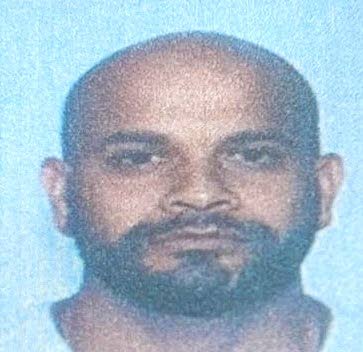Trinidadian wanted in US on drug charges, loses appeal

All hurdles have been cleared for the extradition of a Trinidadian man wanted in the United States on drug trafficking charges, as the Court of Appeal dismissed his appeal and denied a conditional stay.
Justices Mark Mohammed, Peter Rajkumar, and Ronnie Boodoosingh delivered the ruling on March 25, also denying a conditional stay on the extradition process.
Shurlan Guppy, 47, is wanted in the Eastern District of Pennsylvania on 11 charges related to heroin and cocaine trafficking, amounting to $1 million. His claims of entrapment, bad faith, and disproportionate interference with his family life were previously rejected by Justice Ricky Rahim on December 11, 2024. Rahim also upheld the decision of the extradition magistrate.
Later in December, Justice of Appeal Nolan Bereaux stayed the extradition warrant pending the hearing and determination of the appeal in keeping with the Extradition (Commonwealth and Foreign Territories) Act, which provides for a stay once an appeal is filed against the dismissal of a habeas corpus application.
Bereaux also ordered an expedited appeal. However, Guppy’s attorneys missed the deadline to file the record of appeal, prompting the State to ask for the appeal to be dismissed.
Mohammed, who delivered the unanimous decision, said that even if the appeal had been properly filed, Rahim’s findings were reasonable.
The Appeal Court also ruled that Guppy’s extradition did not violate his right to family life, stating that there were no exceptional circumstances to justify barring his transfer.
Mohammed said that it could not be said that Rahim was "plainly wrong" in his assessment of the evidence concerning the three key issues raised in Guppy’s habeas corpus challenge. He explained that Rahim’s analysis and conclusions on the entrapment argument were reasonable.
Regarding the claim that Rahim had failed to properly analyse the issue of bad faith, Mohammed noted there was latitude with prosecutorial discretion and that there was no basis to conclude that US authorities acted in bad faith by charging Guppy while not prosecuting two American relatives implicated in the drug transaction. He said proving the differential treatment based on citizenship was a difficult threshold to cross.
The judges also concurred with Rahim’s stance that the entrapment argument was best left for a trial court to determine, particularly since entrapment is a defence under US law.
Addressing Guppy’s claim about the right to family life, Mohammed said Rahim properly directed himself in law, balancing the public interest in extradition against potential interference with family life. They found no evidence of exceptional circumstances to justify halting the extradition. Mohammed held that Rahim demonstrated awareness of the importance of family life but concluded that nothing in the case met the threshold for exceptional circumstances.
They also held it could not be said that Rahim failed to weigh the competing interests fairly or that he had erred in law. Mohammed said the Appeal Court would have arrived at the same conclusions as Rahim, affirming that his findings were sound and that he had not been mistaken in his assessment of the facts, evaluation of the evidence, or in his fact-finding exercise.
Guppy was arrested on September 25, 2023, in Westmoorings following an extradition request from the US.
He faces charges including conspiracy to distribute heroin and cocaine, attempted distribution, and distribution of narcotics in the Eastern District of Pennsylvania. Evidence against him includes intercepted communications, drug seizures, and cooperation from a US informant who allegedly identified Guppy as a supplier.
On July 31, 2024, acting Chief Magistrate Christine Charles found sufficient grounds to commit Guppy to await the Attorney General’s warrant for extradition.
Guppy subsequently filed a writ of habeas corpus, alleging entrapment and raising concerns about the impact of extradition on his autistic son.
Guppy’s legal team argued that US authorities used entrapment to build their case, claiming that Guppy was not a target until the informant implicated him and that financial inducements were offered to prompt criminal transactions.
Rahim found no evidence to support the claim of entrapment. He noted that the allegations against Guppy pre-dated the purported inducements and included evidence of drug shipments, communications about narcotics, and activities involving Guppy’s father-in-law and wife.
In his ruling, Rahim held, “The public interest in extraditing persons accused of trans-border international drug offences is great. This is so because of the incestuous criminal nature of those types of offences whereby the demand for narcotics of one territory is fulfilled by cross-border smuggling which is one of the allegations set out in the information in this case.”
He added, “There is a high public interest in ensuring that extradition arrangements are
honoured so as to ensure in turn that persons do not see TT as a State willing to accept fugitives from justice.
“In this case, there has been a long-standing mutually respected and reliable relationship between the US and TT to extradition for the prosecution of drug offences committed in either territory.
“Therefore, the decision of the grand jury of the requesting state should be accorded a high degree of mutual confidence and respect.”
He also faces local charges of possessing a firearm, ammunition, and cocaine and has been denied bail on those charges.
Attorneys Mario Merritt and Randall Raphael represented Guppy at the appeal while Ravi Rajcoomar, SC, Raphael Ajodhia, and Raydon Dalrymple-Watts represented the State.
Guppy was ordered to pay the State’s costs.

Comments
"Trinidadian wanted in US on drug charges, loses appeal"